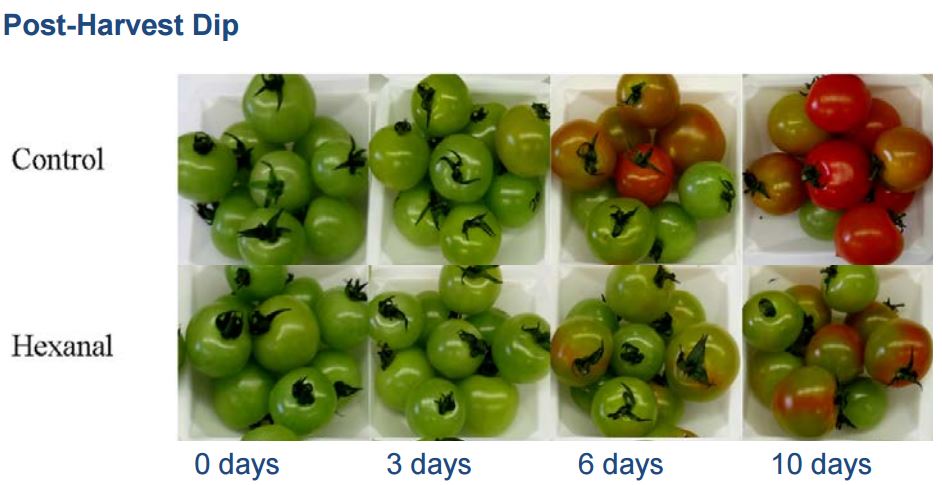Canadian researchers has proven that an affordable and natural plant product can extend harvests and lengthen the shelf life and quality of fresh fruit.
Ottawa, ON. Efforts are now underway to commercialize the technology and expand its use for a variety of fruits. Dr. Jay Subramanian, a professor of tree fruit breeding and biotechnology at the University of Guelph, Ontario, Canada, will deliver a presentation on the work carried out by his research group on a treatment that extends the shelf life of fruits by use of a natural compound, hexanal applied in a nano-scale formula.

Reducing spoilage from perishable fruits is a global challenge. In the developing world, the problem is compounded due to a lack of cold storage facilities and marketing infrastructure. Spoilage also disrupts commodity prices: farmers need to sell bumper crops quickly, driving prices down because of oversupply. Delaying ripening and reducing fruit losses has the potential to increase the incomes of farmers. It would also encourage higher fruit consumption in regions.
Using a patented and well tested technology from University of Guelph, International scientists lead by the University of Guelph were able to show the effectiveness for this product in various fruit crops. More patents are pending for an innovative technique that uses nanotechnology to extend and optimize the use of hexanal to keep fruits fresh and firm longer, especially during storage and transit. Initial research showed that treated fruits stayed on trees up to two weeks longer, stored up to four weeks longer, and improved fruit quality—all of which boosted farmer revenues by 15% (CA$100 per hectare). A team of 35 men and women researchers is working with academic and industry leaders to develop nine easy-to-use commercial products, including hexanal sprays and dips for pre- and post-harvest use, and wax coatings. They are also working on smart packaging systems using nanotechnology to incorporate hexanal into packing materials made from banana stems and other agriculture waste.

On Thursday October 20th, 2016, from 11:00 – 12:30, IICA’s delegation in Canada will host a seminar to inform IICA’s stakeholders on the research findings and to engage potential partners in Latin American and Caribbean (LAC) countries in efforts to expand the commercialization and use of the technology. Dr. Jayasankar Subramanian, Professor with the University of Guelph and key researcher on the technology, will provide an overview of the research and current state of commercialization.











